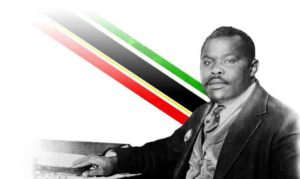
When Carter G. Woodson, the African American historian, came up with the idea of “Negro History Week” in 1926, he was, no doubt, hoping for a national movement, particularly among Black Americans, to celebrate who they are. It was a recognition that Black people were being ignored by not just history books, but in all things.
In 1970, the week expanded to a month and is marked in several countries. In the UK, it is celebrated in October.
There has been a long-standing debate over whether designating a month, February, is defeating the purpose of not having the history of Black people celebrated year-round, taught in schools and taking its rightful place in the panorama of peoples’ history. It has been a slow-moving process, but that goal is beginning to take some effect.
In 1995, Canada, at the behest of a motion by Member of Parliament, Jean Augustine, the House of Commons made Black History Month official. The Senate, in 2008, instigated by Donald Oliver, did the same. It should not go unheralded that this achievement came with a great deal of push from individuals and organizations such as the Ontario Black History Society (OBHS).
Perhaps, one of the first hurdles for this kind of celebration is to recognize that this is a self-confidence building exercise. Black peoples’ history did not begin in enslavement. The slaveowners did everything they could to eliminate the idea that we were a free people.
For many of us who grew up in the Caribbean, we were not exposed to the positive history of our ancestors, and were made to feel less than human and to be ashamed of the fact that we are the descendants of an enslaved people. So, restoring our humanity and being proud of who we were, and are, is an essential part of the celebration of Black History Month.
Of course, the other prong of this celebration is to let others know that we are proud of whom we are and that we are reclaiming our history and traditions in spite of what has been done to us over four centuries.
And there is more. In spite of all the roadblocks, and lack of appreciation, we want other Canadians to recognize that we, too, have contributed significantly to the growth, development and prosperity of this country. Certainly, many of the heroes of this movement of celebration have been and continue to be recognized by the community. Whether it was a Viola Desmond, a Lincoln Alexander or a Rosemary Brown or a Charlie Roach or a Michaëlle Jean, or the hundreds of others who have, individually or collectively, helped to move the yard sticks, we have reasons to celebrate.
Black History Month should also be seen as a timely renewal of energy and determination to continue the struggle against anti-Black racism. This is where we remember the sacrifices and resistance of those who struggled for freedom from enslavement.
The international resistance is part of history as their leadership served to influence us and others. From Toussaint L’Ouverture to Marcus Garvey, Malcolm X and Martin Luther King, Jr., and so many others, we have much to celebrate about the history of people. The courage to defy the lethal powers of the slave masters who supported and protected by the colonial administrations should serve as an energy booster to continue the renewal of the struggle.
It hasn’t been easy. It hasn’t been without tragedy. And, there will undoubtedly be more of the same. But rediscovering our traditions and celebrating our pioneers are essential fuel for the way ahead.


